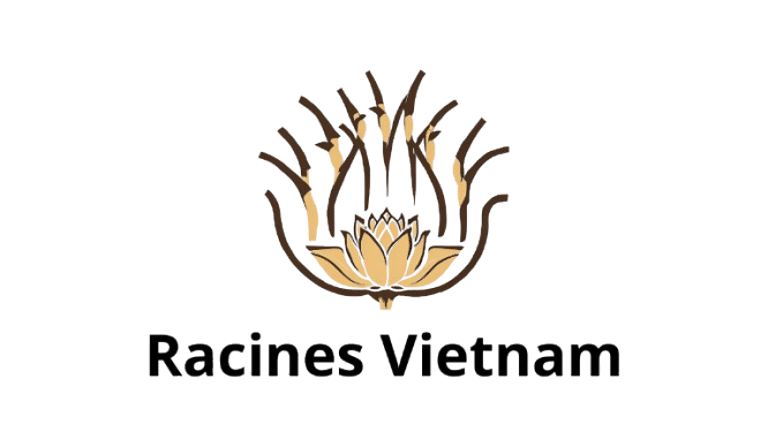“A blog created by an adopted Franco-Vietnamese for all those seeking to reconnect with their origins.”
Challenges Adopted Children Face in Their Search for Identity
Discover the emotional and cultural challenges faced by adopted children seeking their origins. Insights, testimonies, and expert advice for a supportive journey.
3/3/20253 min read


The Challenges of an Adopted Child in Search of Identity
Introduction
Adoption is a journey filled with love, but also with deep emotional complexity. Whether it's through international adoption, open-adoption, or foster care, each adoption story is unique. According to recent data, over 70% of adoptees eventually express a desire to understand their medical history, origins, and family roots.
This article explores the key challenges adopted children may face in their search for identity and offers practical advice for adoptive parents, professionals, and anyone involved in adoption and foster care.
1. Belonging and the Search for a Forever Family
Many adoptees experience a sense of duality between their birth family and their adoptive family. This can be especially strong in intercountry adoption or transracial adoption, where culture, language, and appearance may differ.
In the foster care system, many children wait years for a forever family, often moving between placements. Foster children may carry emotional scars from instability or lack of guardianship, which can complicate attachment.
Testimony – Sophie, adopted internationally:
"It wasn't until I embraced both my cultures — my birth roots and my new family — that I started feeling whole again."
Solutions:
Encourage nurturing, open conversations about heritage.
Celebrate cultural traditions and integrate them into daily parenting.
Connect with support groups for adoptees and foster families.
2. Understanding Birth Parents and Origins
Children often wonder about their birth parents, siblings, and past:
Why was I placed for adoption? Do I have siblings? What’s my medical history?
This is especially complex in closed adoptions where access to adoption records or an original birth certificate may be limited. For international adoptions, the trail may be harder to trace.
Testimony – David, adopted from South Korea:
"The first time I saw a photo of my birth father, I felt emotions I didn’t know I had. It became the start of something new in me."
Solutions:
Provide age-appropriate, honest information.
Explore what’s available legally, respecting adoption laws and privacy.
Work with your adoption agency, adoption center, or licensed adoption services to access information if possible.
3. Social Perceptions and School Integration
Children who are adopted — especially those from internationally or foster care backgrounds — often deal with social questions or even stigma.
Testimony – Nina, adopted from Haiti:
"I got asked if my parents were really mine. Over time, I built the strength to answer proudly and educate others."
Solutions:
Prepare your child for common social questions.
Educate schools about different family structures and the meaning of adoption.
Join or create a support-group with other adoptive families.
4. Psychological Well-being and Confidence
Many adoptees experience periods of self-doubt, especially if their adoption was the result of neglect, unplanned pregnancy, or extended time in the foster care system.
Feelings of loss or rejection may impact self-esteem, especially for children adopted as newborns or older foster children.
Testimony – Alexandre, adopted at 5:
"It took years to realize that my story didn’t make me less worthy — it made me strong."
Solutions:
Offer therapy with professionals familiar with adoption support.
Encourage emotionally expressive environments.
Let the child know that every feeling is valid and part of growing.
5. The Legal and Financial Aspects of Adoption
Understanding the adoption process helps parents and children feel more secure.
Types of adoption include:
Open-adoption – where communication with birth parents is possible.
Closed adoption – with no identifying information shared.
Domestic and intercountry adoption – each with different legal processes and challenges.
Home studies, paperwork, and adoption costs can vary greatly by region and whether it's handled by a private adoption agency, governmental body, or adoption service provider.
For those adopting in the U.S., adoption tax credits and financial adoption assistance may be available to help make the process more accessible for every child — including those with special needs.
Tip: Always work with a licensed adoption agency, adoption attorney, or adoption service provider who acts in the best interest of the child.
6. Reconnecting with Roots: A Lifelong Journey
Searching for one’s origins is often a vital chapter in the adoption story. For some adoptees, this means reaching out to biological relatives, others simply want closure.
Testimony – Claire, adopted internationally:
"Even though I didn’t find my birth mother, the process helped me feel complete."
Solutions:
Allow the child to express their curiosity in their own time.
Access available records through your adoption agency or country’s authorities.
Support their journey, no matter the outcome.
Conclusion: Supporting Identity Through Love and Openness
Adoption is not a one-time event — it’s a lifelong process.
The role of adoptive parents, foster families, and professionals is to walk alongside children with compassion, strength, and unwavering support.
Whether you're navigating how to adopt, finalizing a placement through the foster care system, or building a loving family through international adoption, the goal remains the same: helping every child feel seen, loved, and safe.
With the right adoption support, legal guidance, and emotional openness, adoptees can grow into confident individuals who see their story as a source of power — not pain.
Main Menu:
Explorations:
Resources & Immersive Content
Community & Support
Legal & Languages
Contact & Social Networks
✉️ contact@racinesvietnam.com
📱 Instagram | Facebook | YouTube
©️ Copyright
© 2025 RacinesVietnam.com — Tous droits réservés
Site indépendant, créé sans code, hébergé par Hostinger
